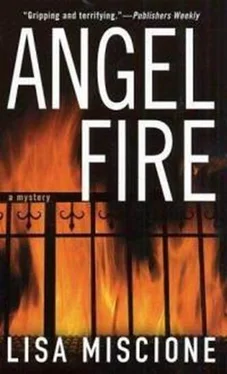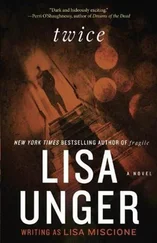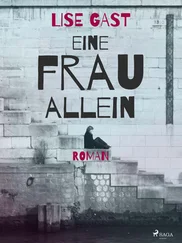She had said to him once, “Never love anything so much that if fate snatches it away, your whole world turns black.’’
He knew it was too late for that now – for both of them.
“Lydia, I’m okay,’’ he repeated softly. He lay very still, afraid to move his hand, afraid she’d let it go.
She searched his face to see if he was lying. Then she nodded and sat back in the chair, keeping her hold on his hand. He watched as she struggled to recover herself. Her skin was flushed, she stared away from him. Anyone else would have thought her face lacked emotion, her small features were taut and still. But her gray eyes told the tale to him alone.
“Don’t you ever die on me, Jeffrey. Don’t you ever,’’ she whispered.
She seemed not to be able to stop the quiet, choking sobs that shook her shoulders. He would almost rather take another bullet than ever hear that sound again.
“Lydia,’’ he began, the words he had wanted to say for years on the tip of his tongue.
She stopped him. “Don’t, Jeffrey,’’ she said gently.
He let it go, too afraid to go forward. They sat in silence, hand in hand, until he drifted off to sleep.
She stayed with him in his midtown apartment for almost a month. She cleaned, she cooked, she nursed him with a tenderness he wouldn’t have believed of her. Not that she was a cold woman. But getting close to her was like trying to get a bird to eat out of your hand. You had to hold that bread crumb out consistently and for a good long time before you earned enough trust to approach without generating a flight response. She slept in his guest room, though she had her own apartment in New York City overlooking Central Park West. She stayed until he became restless to go back to work and she was satisfied that he was well.
Then Lydia left, went off to Europe to find out if Esmy von Buren was really killing her own children as her former mother-in-law suspected. Jeffrey didn’t try to make her stay, just kissed her lightly on the mouth.
“I’ll always be here, Lydia.’’
“So will I.’’ And she flashed him a rare smile.
He strapped himself in now, and was glad to see that the door had closed but no one was sitting beside him, even though he probably would not at any point “take off his seat belt and move freely about the cabin’’ as the pilot would blithely suggest. Didn’t people know about wind shears?
The plane began taxiing down the runway, picking up speed. He wondered, as he had wondered a thousand times, what would have happened if he had pushed her that night in the hospital. It might have taken only the slightest nudge. Perhaps she would have opened to him like a hothouse orchid. Or perhaps she would have shattered into a thousand pieces, like a carelessly handled porcelain doll.
But as it was, since their month of living together almost a year ago, she’d put more distance between them than ever. At the height of the FBI investigation of Esmy von Buren, which Lydia had been responsible for getting started, she called him almost every day, but they spoke only about the case. He’d seen her only a handful of times when she returned to New York for Esmy’s trial. Then, two months ago, with Esmy tried and convicted of three counts of murder and Lydia’s article turned in to New York magazine, Lydia took off. She left a message on his home machine, though she could have easily reached him on his cell phone.
“I need a rest after this case. Christ, I’m exhausted. I’ll call you. Take care of that shoulder.’’
The plane was racing down the runway, doubling its speed by the second and making his adrenaline pump. He let his head be pushed back by the force of takeoff and closed his eyes as he felt the wheels leave the ground. Why had she stopped him when they were so close? The last safe moment had passed between them – there was no real pretending to each other that their relationship ended with friendship. But he would rather see her preserved in the environment she created for herself than watch their relationship crumble if he came too close. So he endured the painful distances and the torturous closeness. He would continue, he knew, to come when she called.
The Church of the Holy Name was dimly lit by the fading sun as Lydia entered. Awed by the hush of the sacred room, at once she felt like a child and an intruder. She consciously pushed the vivid images of her dream from her mind. Still she felt a flutter of nerves in her stomach. She kept expecting to see her mother. Why did you come she asked herself, as if something outside her had made the choice to stop suddenly on her way to the airport.
As she walked cautiously down the center aisle toward the altar, the old, immaculately polished wood floors groaned loudly beneath her lizard-skin boots.
“Is someone here?’’ Juno Alonzo materialized in a doorway that had been empty a moment ago. He was a tall man, almost six feet, and thin. His eyes seemed fixed on her – jet pools in a landscape of strong but gentle features. Full, red lips sloping into a square jaw, chiseled cheekbones leading to a high, deeply lined brow. But his face was more than the sum of these parts. There was something mesmerizing about it, like a portrait come to life. He was easily the most beautiful man – in an ethereal, almost angelic way – she had ever seen. She had the urge to confess all her sins to him and do penance in his arms.
He spoke again. “Hello?’’
“Mr. Alonzo?’’
“Yes?’’
“I’m Lydia Strong.’’
“The writer?’’
“Yes.’’
She wondered for a moment if he would treat her with suspicion and then turn her away as he had to other writers who came to interview him. But instead he smiled and approached her with his hand outstretched in greeting, as if he had been expecting her.
“A pleasure, Ms. Strong. My uncle has read your work to me from magazines and I’ve listened to you interviewed on National Public Radio. I had heard you had a home in the area.’’
When she took his hand in hers, he covered it with his other, gently pulling her closer to him. It was a warm and powerful grip, full of a strange energy that made Lydia flush and smile lightly in spite of herself. They stayed like that for a moment longer than would have seemed appropriate in another context. And as she stood captivated by his unseeing gaze, her small hand folded in his large one, she was tempted to believe what she had read about Juno. She wondered suddenly if he did have the power to enter people’s dreams. It was a ridiculous thought but it stayed with her. She would give anything to have one last chance to talk to her mother, to say good-bye, to say she was sorry… for what, she didn’t know. She would give anything to show her mother the accomplishments she had made in her career, to hear that her mother was proud of her. Would it cause her mother pain to know she wasn’t married, that she never went to church? Would Marion be angry or disappointed? Lydia wanted to know these answers so badly sometimes.
She looked at Juno, searching his face for some hint of the supernatural. Like what – some kind of glowing tattoo – a third eye? she thought. But even her own internal sarcasm couldn’t dampen the irrational and inexplicable feeling of hope that welled in her. And the images from her dream haunted her, were a tune stuck in her head, repetitive and annoying.
“Please, sit down, Ms. Strong. Tell me what I can do for you.’’ He led her to a pew with his hand on the small of her back. “I assume you are here to talk about Christopher Poveda.’’
“Who?’’
“The boy who died recently of leukemia.’’
“Actually…’’
“Sometimes God calls his children home, Ms. Strong. And there is nothing on earth any of us can do.’’
Читать дальше












